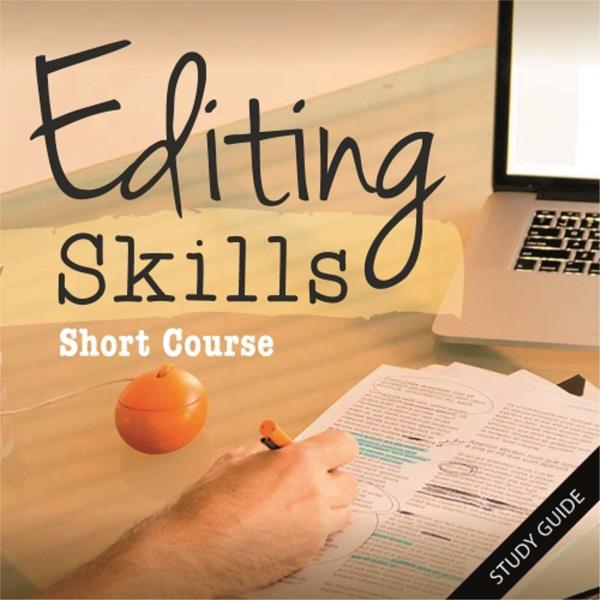
This short course will teach you the primary elements required in good editing, be it in documents, writing works of fiction or non-fiction. Editing is required in many areas of work, from the production of reports to online content. You will learn about how and why to edit - from why you may edit content, to using editing to improve the readability and flow of written text. Editing, however, is not just about looking at written text and the course also covers areas such as communication and how you could look to sell your services.
Lesson Structure
There are 5 lessons in this course:
-
HOW MUCH EDITING?
-
Introduction
-
Finding a Balance and Setting Priorities
-
Why Are You Editing?
-
Fiction and Non-Fiction
-
Editing Fiction
-
Editing Non-fiction
-
Personality Traits of Editors
-
What do you need to be a good editor?
-
Dysfunctional Editors
-
Functional Editors
-
Editing Traps
-
STAGES OF EDITING
-
Introduction
-
Editing Steps
-
Step 1 - Securing the Document
-
Step 2 - Be clear about what you need to do
-
Step 3 - Plan
-
Step 4 - General Editing
-
Step 5 - Copy Editing
-
Step 6 - Illustrations
-
Step 7 - Styling
-
Example of a Simple Style Guide
-
Step 8 - Proofreading
-
Step-By-Step
-
TYPES OF EDITING
-
What Are Your Editing Criteria?
-
Improving Content
-
Aim for Originality
-
Maintain Interest
-
Keep it Current
-
Make Sure It’s Complete
-
Improving Readability
-
Clarity
-
Accuracy
-
Tone and Style
-
Impact
-
Grammar
-
Spelling
-
Consistency
-
Spelling and Grammar isn’t Constant!
-
Editing a newsletter
-
Editing a blog
-
Editing a print magazine or newspaper
-
Editing a sales catalogue
-
Editing a brochure
-
Editing a fiction book
-
Editing a non fiction text book
-
Editing research papers and journal articles
-
Conclusion
-
TOOLS AND LANGUAGE
-
Editing and Proofreading Symbols
-
Examples of Proofreading Symbols
-
Proofreading Tips
-
IT Tools
-
Spellcheckers
-
Autocorrect
-
Find and Replace
-
Track Changes
-
Editing Images
-
Plagiarism
-
INTERPERSONAL SKILLS FOR EDITORS
-
Communication
-
Listening and Talking
-
Written Communication
-
Advanced Written Communication
-
Structure
-
Style
-
Content
-
How Editors Communicate
-
When and Where Editors Work
-
-
FINDING WORK AND SELLING YOURSELF
-
Editing Today
-
How to Sell Yourself
-
Freelancing
-
Setting Up Your Own Website
-
Resources
-
Final Thoughts
-
FINAL ASSESSMENT
Learn to Edit any sort of written or published work.
- Articles, books, stories
- Speeches, reports, submissions, brochures
- Web sites, blogs, social media postings
- Letters, emails, or anything else
Who is this Course for?
- Anyone who is needing this skill, but lacks formal training in editing
- Professional development or a refresher for people working in printing publishing, marketing
- Anyone seeking employment in a job that involves an editing component - from personal assistant to communications officer
- Writers wishing to improve their work
